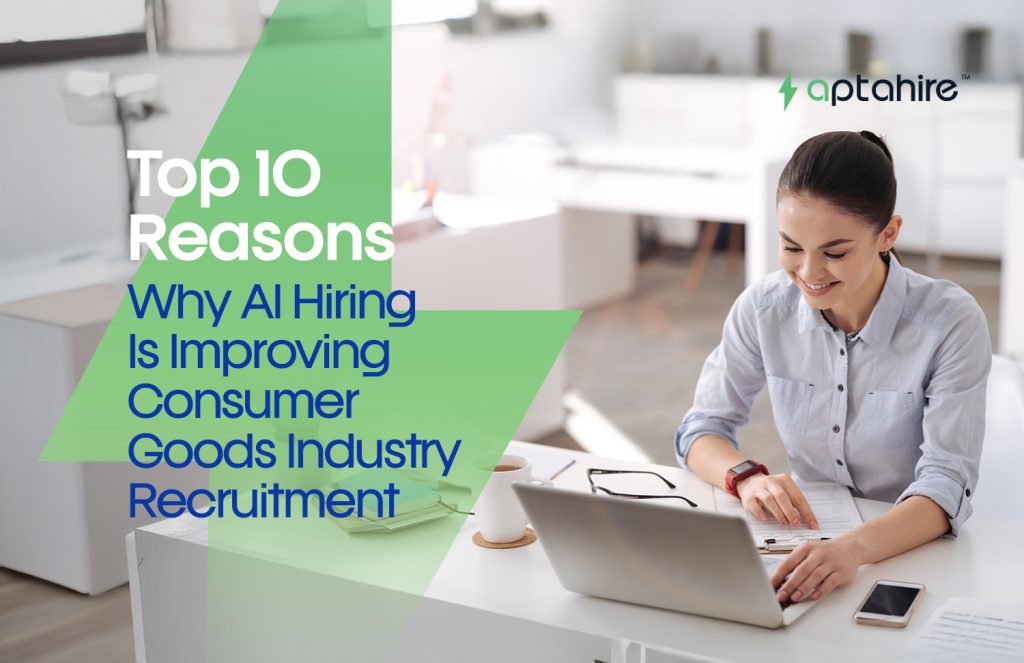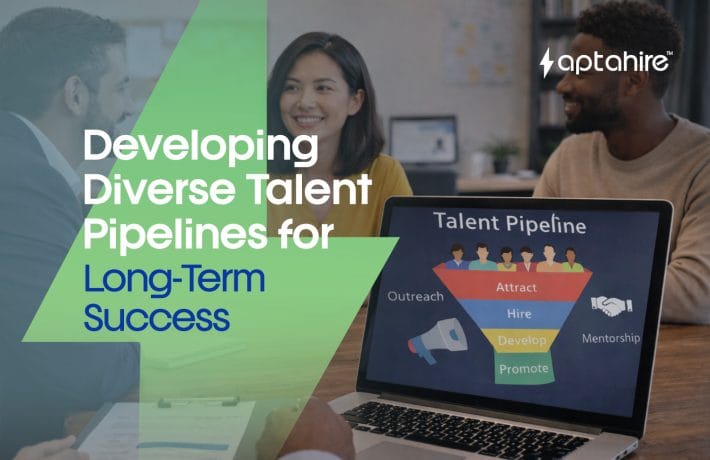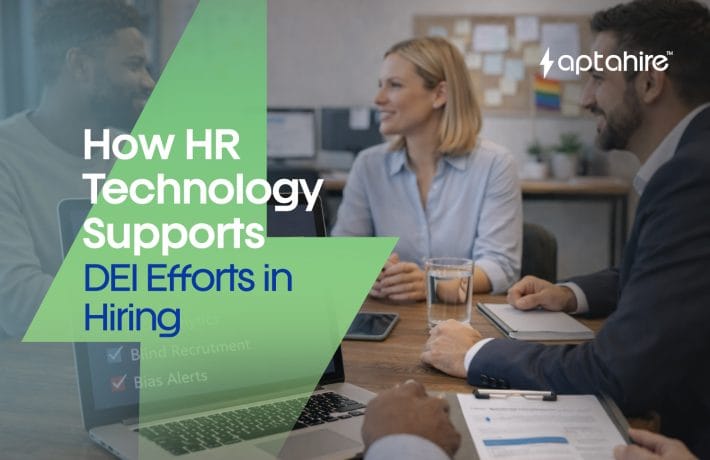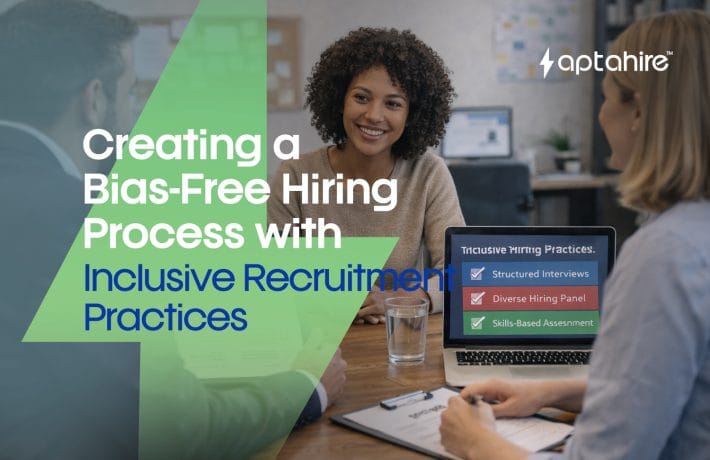Top 10 Reasons Why AI Hiring is Improving Consumer Goods Industry Recruitment

Introduction
Hiring for the marketing and advertising world isn’t simple anymore. You’re not just looking for someone who knows how to run ads or write a catchy line, you need people who can keep up with fast-changing trends, work across channels, understand data, and still be creative. That’s a rare mix, and finding the right fit takes a lot of time and effort.
That’s exactly where AI is stepping in and changing the game. It’s not just helping recruiters save time, it’s helping them make smarter decisions, find better matches, and build teams that can actually deliver results in today’s competitive landscape. In this blog, we’ll walk through ten ways AI is seriously improving how companies in the consumer goods industry are hiring for marketing roles, and why getting on board with AI hiring might just be the smartest move you make this year.
1. It Finds the Right People, Even If They Don’t Have the “Perfect” Resume
Great marketing people don’t always have the perfect job title or the exact keywords on their resume. Some of the best talent might call themselves content creators, brand storytellers, or even data enthusiasts, but they have the exact mix of creativity and analytics you’re looking for.
AI hiring tools are built to spot those kinds of candidates. They use natural language processing (basically, they understand context and meaning behind words) to dig deeper into a candidate’s experience. For example, someone might have worked on campaign performance, user engagement, and ad testing, but not list “performance marketer” anywhere. AI picks up on that.
It also looks at things like portfolios, past campaigns, and even online presence. So, it’s not just scanning for keywords, it’s actually finding people who do the work you need, whether or not they’ve had the “right” job titles before.
2. It Handles All the Boring Stuff (So You Don’t Have To)
Let’s be honest, recruiting can be repetitive. Going through hundreds of resumes, setting up interviews, replying to the same questions over and over again… it’s not the most exciting part of the job. But it still has to get done.
AI takes a huge load off by automating all that admin work. It can screen resumes in seconds, shortlist candidates, answer FAQs through chatbots, and even handle scheduling without the endless back-and-forth emails.
The best part? You get all that time back. Instead of being buried in spreadsheets or juggling calendars, your team can focus on talking to the right people, refining your hiring strategy, and making sure you’re bringing in the best talent, not just the most available.
3. It Makes the Application Process Feel Human (Even When It’s Not)
We’ve all been there, applying for a job and getting a generic email weeks later, or worse, nothing at all. For candidates, especially in marketing, that kind of experience is a red flag. If a brand doesn’t show up well during hiring, what does that say about the company culture?
AI helps fix that. It personalizes communication based on how candidates interact with your content. If someone clicked through your job posting but didn’t apply, the system might send a reminder or share a similar role. If someone started an application but didn’t finish, it might trigger a follow-up email with helpful tips.
This isn’t just about being efficient, it’s about making candidates feel like they matter. And when candidates feel valued during the hiring process, they’re more likely to stay engaged, respond faster, and accept your offer when it comes.
4. You Get Real-Time Data That Tells You What’s Working (and What’s Not)
One of the toughest parts of hiring is figuring out what’s actually working. Are your job posts attracting the right talent? Is one platform giving you better applicants than another? How long is it taking to close a role? These aren’t just HR questions, they impact your marketing timelines and campaign delivery too.
With AI, you’re not guessing. You get access to real-time dashboards that break down everything from time-to-hire to which job board is performing best to how diverse your candidate pipeline really is. You can see exactly where candidates drop off, how long each hiring stage takes, and which recruiters are closing faster.
All of this means smarter decisions. You can reallocate your budget, tweak job descriptions, or shift strategies; before a hiring bottleneck slows your team down.
5. It Helps You Spot Future-Ready Talent (Before Everyone Else Does)
Marketing moves fast. Today’s SEO expert needs to know about AI content generation. Tomorrow’s brand strategist might need to be comfortable with immersive experiences or voice search. But how do you hire for skills that are just starting to emerge?
AI can help here too. By analyzing trends across job markets, training data, and even internal promotions, it can spot patterns that humans might miss. For instance, someone with a background in influencer marketing, paired with strong storytelling and analytics, might be a great fit for a future content and community strategist role, even if that job title doesn’t exist yet.
This kind of predictive hiring is a huge edge in consumer goods marketing, where the brands that innovate faster often win the shelf space and customer loyalty.
6. It Reduces Bias, So You Actually Hire for Skill, Not Stereotypes
Bias creeps into hiring in all kinds of ways; consciously or not. Whether it’s a preference for certain schools, backgrounds, or just someone who “feels like a good fit,” these instincts can limit the diversity and innovation your team needs.
AI systems are built to minimize those blind spots. When used right, they can strip out identifiers like name, photo, or even age during the screening phase. That means candidates are judged purely on skills, experience, and performance, not personal details.
Some tools also help you write more inclusive job descriptions by flagging biased language. Others highlight imbalances in your applicant pool, so you can adjust your outreach strategies. The result? A fairer, wider talent pool, and often, better-performing teams.
7. It Can Even Review Portfolios and Campaign Work at Scale
Anyone hiring marketers knows that a resume doesn’t always tell the whole story. Portfolios, campaign case studies, ad copies, and content performance reports often hold the real value. But reviewing all of that manually takes forever.
Now, AI tools can scan and analyze creative work, too. For written content, they use natural language processing to evaluate tone, clarity, and structure. For visual assets, image recognition and design models can assess layout consistency or even brand alignment. Some tools can even match past campaign results (like engagement rates or conversion data) to performance benchmarks.
So instead of just saying “this looks good,” you’ll know which candidate’s work actually works.
8. It Helps You Grow Talent from Within, Not Just Hire from Outside
Hiring isn’t always about bringing in new people. Sometimes the best fit for a role is already inside your company, but they’ve just never had the opportunity or visibility to move.
AI makes internal mobility smarter. It maps your employees’ current skills, past roles, certifications, and even learning behavior to show potential fits for new roles or projects. If someone in sales has been upskilling in performance analytics or someone in content is dabbling in UX strategy, AI can flag them as candidates for open marketing roles.
This helps you retain top performers, reduce hiring costs, and build loyalty, all while filling roles faster with people who already know your brand inside out.
9. It Speeds Up Hiring Without Sacrificing Quality
In marketing, timing is everything. When you’ve got a campaign about to launch or a new product going live, waiting six weeks to hire a strategist or performance lead just isn’t an option.
AI hiring tools cut that lag dramatically. Instead of taking days to shortlist, schedule, and screen, you’re looking at hours. Pre-built assessments, real-time scoring, and automated interviews mean top candidates move through the funnel fast, and the data helps you make better decisions, faster.
And because the scoring is based on data (not just gut feeling), the candidates who make it through tend to stay longer, perform better, and fit more seamlessly into the team.
10. It Helps You Plan for What’s Coming Next
Consumer goods marketing is evolving rapidly. We’re seeing shifts toward AI-generated content, omnichannel campaigns, hyper-personalization, and real-time shopper insights. The roles you need next year may not even be on your radar today.
This is where AI really shines. It doesn’t just help with hiring today, it helps forecast what skills you’ll need tomorrow. By analyzing labor market data, competitor trends, and shifts in candidate behavior, AI tools can help you build a proactive hiring strategy. You’ll know when to start sourcing for a CX strategist or an AI content specialist before the competition even posts the role.
It’s like having a crystal ball for your hiring roadmap.
Some Eye-Opening Industry Stats
- According to a LinkedIn report, 67% of recruiters say AI helps them save time in the hiring process.
- In the marketing world, over 55% of companies are now using AI tools to level up recruitment.
- Companies using AI hiring platforms report up to 30% faster time-to-hire, and a 25% jump in candidate quality.
- Gartner recently found that 74% of CMOs are investing more in analytics and marketing operations, meaning the demand for hybrid, data-creative talent is only growing.
Pro Tips for Making the Most of AI Hiring
- Train your hiring managers to understand what the AI is doing behind the scenes. Knowing how the algorithm scores candidates makes decision-making smarter.
- Choose tools that are transparent and let you audit their decision paths. Black box hiring systems are risky.
- Regularly check your AI models to make sure there’s no unintended bias creeping in.
- Don’t go fully hands-off, AI should support your decisions, not replace your judgment.
- Make sure your candidate experience doesn’t feel like they’re talking to a machine the entire time. Balance automation with authenticity.
A Few Interesting Facts
- IBM’s Watson reportedly helped reduce bias in hiring by over 80% in pilot programs.
- Adobe uses AI to match marketing interns with teams based on both skills and personality data.
- Some AI video interview tools can analyze tone, body language, and confidence in under 90 seconds, helping identify red flags early.
Final Thoughts
The consumer goods industry is a fast-moving, high-stakes world, and your marketing team can make or break how well your brand performs on the shelf and in the minds of consumers. AI hiring isn’t just a nice-to-have anymore. It’s becoming essential to keep up, stay efficient, and build teams that are not only creative but data-savvy, adaptive, and forward-thinking.
But AI isn’t magic. It works best when combined with real strategy, human insight, and a clear understanding of your hiring goals. Get that balance right, and you’re not just hiring people, you’re building a future-proof brand team, ready for whatever the next wave of marketing innovation brings.
FAQs
1. Is AI hiring going to replace recruiters and HR professionals?
Not at all. AI is here to assist, not replace. It automates repetitive tasks like screening and scheduling so recruiters can focus on what truly matters, relationship-building, evaluating culture fit, and making strategic hiring decisions.
2. How accurate is AI in evaluating creative marketing roles?
AI is surprisingly effective, especially when trained with the right data. It can assess portfolios, past performance, and skill-based assessments. However, human judgment is still crucial to evaluate nuance, brand alignment, and creative originality.
3. Can AI hiring tools eliminate bias completely?
They can significantly reduce bias, but no system is 100% perfect. The key is to combine AI with regular audits, ethical usage, and transparent processes to ensure fairer outcomes than traditional hiring alone.
4. How does AI help with internal hiring or talent mobility?
AI maps current employee skills, interests, and learning patterns against open roles. It helps identify hidden talent, suggest internal moves, and even recommends upskilling opportunities, so you build from within more effectively.
5. Is it expensive to implement AI hiring tools?
Costs vary based on the platform, but many tools offer scalable pricing. For growing businesses in the consumer goods space, the time and cost savings from faster hiring, better matches, and reduced turnover often outweigh the initial investment.
6. How do candidates feel about being evaluated by AI?
Transparency is key. When candidates understand how the system works, and see that it leads to fairer evaluations and faster feedback, they’re usually onboard. Just ensure the process still feels human and not overly robotic.



